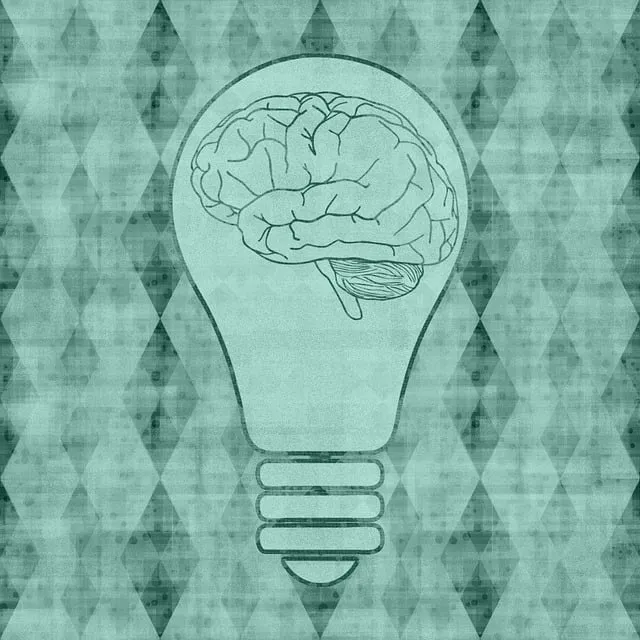Kaiser in Greenwood Village employs the RFM (Risk, Factors, and Resources) model, a structured approach to building resilience through comprehensive risk assessments, personalized interventions, and safe space exercises facilitated by skilled therapists. This holistic initiative addresses emotional well-being alongside physical health, equips individuals with lasting coping mechanisms, reduces burnout, and contributes to a healthier healthcare system. Backed by research, this approach improves mental health outcomes and is a key component of community healthcare, answering the question "does Kaiser have good therapists in Greenwood Village?" affirmatively.
Resilience, a cornerstone of mental well-being, is cultivated through structured exercises known as RFM (Resilience-focused Mindfulness). This article explores this concept’s significance in building emotional fortitude. We delve into the crucial role therapists play in guiding clients through RFM exercises and present a case study focusing on Kaiser’s therapeutic approach in Greenwood Village. Additionally, we offer practical strategies for seamlessly integrating RFM into clinical practice, answering the query of whether Kaiser’s therapists in Greenwood Village effectively harness these methods.
- Understanding RFM and Resilience: An Overview of the Concept
- The Role of Therapists in Implementing Resilience Building Exercises
- Case Study: Exploring Kaiser's Approach to Therapy in Greenwood Village
- Effective Strategies for Integrating RFM into Clinical Practice
Understanding RFM and Resilience: An Overview of the Concept

Resilience, the ability to adapt and bounce back from adversity, is a crucial aspect of mental wellness. This concept has gained significant attention in the field of psychology, especially with the increasing focus on community mental health and well-being. At Kaiser, known for its excellent healthcare services in Greenwood Village, therapists play a pivotal role in fostering resilience among individuals facing various challenges.
The RFM (Risk, Factors, and Resources) model offers a structured framework for understanding and strengthening resilience. By conducting thorough risk assessments, mental health professionals can identify potential hazards and protective factors within an individual’s environment and personal life. This assessment forms the basis for designing tailored interventions and strategies to enhance mental wellness. The process involves exploring various factors, such as past traumatic experiences, social support systems, and access to resources like therapy or support groups, which can contribute to building resilience over time.
The Role of Therapists in Implementing Resilience Building Exercises

Resilience building exercises play a pivotal role in fostering mental health awareness and depression prevention, especially in communities like Greenwood Village where access to quality care is essential. Therapists at Kaiser or any reputable healthcare facility serve as guides, providing Crisis Intervention Guidance tailored to individuals’ unique needs. Their expertise is crucial in navigating the implementation process, ensuring these exercises are not just completed but integrated into clients’ lives for lasting impact.
Therapists facilitate a safe space where participants can explore their emotions, develop coping mechanisms, and build resilience. Through structured activities and personalized support, they help individuals strengthen their ability to withstand life’s challenges. By integrating these practices into therapy sessions, therapists empower clients with valuable tools, ultimately contributing to improved mental health outcomes and enhanced well-being in the community.
Case Study: Exploring Kaiser's Approach to Therapy in Greenwood Village

In Greenwood Village, Kaiser’s approach to therapy has garnered significant interest due to its focus on building resilience and inner strength among patients and healthcare providers alike. This forward-thinking strategy recognizes that fostering emotional well-being is as crucial as physical health in today’s demanding healthcare landscape. By implementing innovative self-care practices and burnout prevention strategies for healthcare providers, Kaiser has created a supportive environment where individuals can navigate life’s challenges more effectively.
The success of this initiative lies in its holistic nature, addressing not just the symptoms but also the root causes of stress and burnout. Through various exercises designed to enhance resilience, Kaiser’s therapists empower their patients to develop coping mechanisms that promote mental fortitude. This approach ensures that individuals not only manage their current circumstances effectively but also build lasting inner strength to overcome future obstacles. The positive impact extends beyond individual transformation; it contributes to a healthier, more sustainable healthcare system in Greenwood Village and potentially beyond.
Effective Strategies for Integrating RFM into Clinical Practice

Integrating RFM (Resilience, Flexibility, and Mindfulness) into clinical practice offers a powerful approach to enhancing patient well-being, especially in communities like Greenwood Village, where access to quality therapists is key, as evidenced by the good reputation of local practices. Effective strategies involve tailoring RFM techniques to individual needs, ensuring therapists are adequately trained, and promoting these practices through Mental Health Education Programs Design. By incorporating RFM into sessions, therapists can teach clients valuable skills to manage stress and adversity. This not only improves mental health outcomes but also fosters a sense of empowerment.
The implementation process should include ongoing training for therapists to stay updated on the latest research and techniques. Encouraging open conversations about mental illness and stigma reduction efforts is vital, allowing clients to feel more comfortable seeking help. Mind Over Matter principles can be powerful tools, teaching individuals to reframe challenges and cultivate a growth mindset. This holistic approach has been shown to significantly contribute to resilience-building, making it an essential component of clinical practice in the community.
Resilience, as a vital component of mental well-being, is best cultivated through structured exercises that can enhance coping mechanisms. The RFM (Resilience, Flexibility, and Mastery) framework offers a comprehensive approach to building resilience, which has been successfully implemented in various therapeutic settings, including Kaiser’s therapy model in Greenwood Village. By integrating RFM into clinical practice, therapists can empower individuals to navigate life’s challenges with greater ease, thereby fostering overall mental health and well-being. When coupled with competent therapist guidance, as demonstrated by Kaiser’s positive reputation in the Greenwood Village area, RFM exercises hold great promise for improving clients’ lives.






